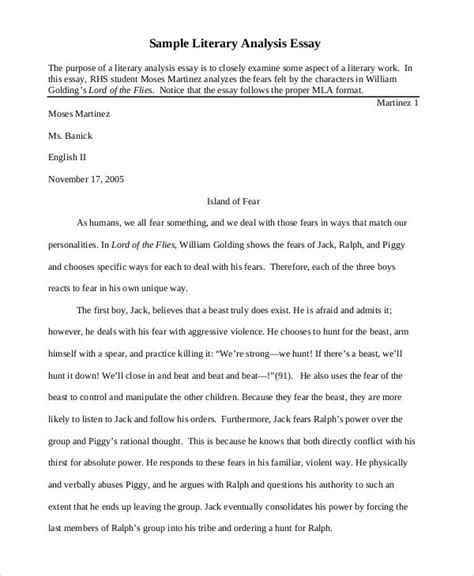Introduction

Literary analysis is a critical approach to understanding and interpreting literature. It involves examining the elements of a literary work, such as characters, plot, setting, theme, and language, to explore its meaning and significance. By engaging in literary analysis, readers can gain a deeper appreciation for the text and develop their own informed interpretations.
Types of Literary Analysis
There are various types of literary analysis, each focusing on a specific aspect of the work:
- Character analysis examines the characteristics, motivations, and development of characters.
- Plot analysis explores the sequence of events and their impact on the characters and story.
- Setting analysis examines the physical, social, and cultural context in which the story unfolds.
- Theme analysis uncovers the underlying messages and ideas conveyed throughout the work.
- Linguistic analysis focuses on the language used in the text, examining its literary devices, syntax, and vocabulary.
Elements of Literary Analysis
To effectively analyze a literary work, consider the following elements:
- Narrative structure: How is the story organized and presented?
- Characters: Who are the main characters and what are their roles in the story?
- Conflicts: What are the obstacles and challenges faced by the characters?
- Setting: Where and when does the story take place?
- Theme: What is the central message or idea of the work?
- Literary devices: What techniques does the author use, such as metaphors, similes, and foreshadowing?
Steps for Literary Analysis
- Read and reread the text: Familiarize yourself thoroughly with the work.
- Identify the elements: List and categorize the key elements of the work.
- Interpret the elements: Analyze the significance and meaning of each element.
- Develop a thesis statement: Formulate a statement that presents your overall interpretation of the work.
- Support your thesis: Use evidence from the text to support your claims.
- Write your analysis: Clearly present your analysis and support your arguments with detailed evidence.
Examples of Literary Analysis
- Character Analysis of Holden Caulfield in “The Catcher in the Rye”
Holden Caulfield is the protagonist of J.D. Salinger’s novel “The Catcher in the Rye.” He is a complex and troubled teenager who struggles with alienation, identity, and the superficiality of society. Holden’s character analysis examines his motivations, relationships, and his ultimate journey of self-discovery.
- Plot Analysis of “The Great Gatsby”
F. Scott Fitzgerald’s “The Great Gatsby” is a tragic love story set in the Roaring Twenties. The plot analysis explores the events leading to Gatsby and Daisy’s tragic downfall, highlighting the themes of love, wealth, and the American Dream.
- Setting Analysis of “The Lord of the Rings”
J.R.R. Tolkien’s “The Lord of the Rings” is an epic fantasy set in the fictional world of Middle-earth. The setting analysis examines the geographical, cultural, and mythical elements of Middle-earth, exploring their impact on the characters and story.
- Theme Analysis of “To Kill a Mockingbird”
Harper Lee’s “To Kill a Mockingbird” is a classic novel that explores issues of race, morality, and prejudice. The theme analysis uncovers the novel’s central messages about the importance of empathy, equality, and the power of childhood innocence.
Benefits of Literary Analysis
- Enhances your reading comprehension: By analyzing a text, you delve deeper into its meaning and gain a more nuanced understanding.
- Develops your critical thinking skills: Literary analysis requires careful examination, interpretation, and argumentation, which strengthens your critical thinking abilities.
- Improves your writing skills: By studying how authors craft their works, you can learn effective writing techniques and improve your own writing style.
- Fosters appreciation for literature: Literary analysis allows you to appreciate the artistry and complexity of literature, enhancing your enjoyment and engagement with books.
Conclusion
Literary analysis is an essential tool for understanding and appreciating literature. By examining the elements of a text, you can uncover its meaning, significance, and its impact on readers. Engage in literary analysis to deepen your connection to the written word and unlock the treasures within it.
